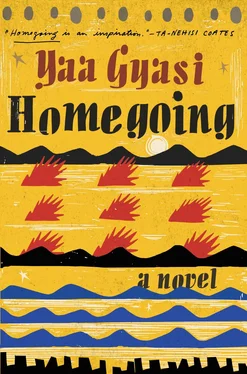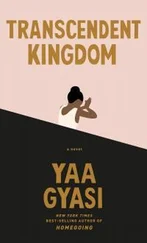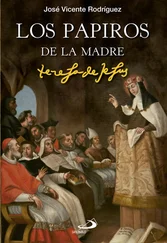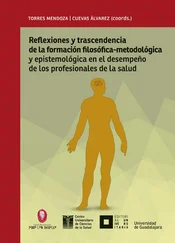Jo shook his head. He’d almost lost the picture once that day and didn’t know what he would do if he lost it again. “Please, sir. It’s the only one I got.”
Then Jo heard the sound of paper tearing. He looked up to see Anna’s nose and ears and strands of hair, the shredded bits of paper flying off in the wind.
“I’m tired of all these runaway niggers thinking they’re above the law. If your wife was a runaway nigger, then she got what she deserved. What about you? You a runaway nigger? I can send you on to see your wife.”
Jo held the policeman’s gaze. His whole body felt like it was shaking. He couldn’t see it, but he could feel it inside him, an unstoppable quaking. “No, sir,” he said.
“Speak up,” the policeman said.
“No, sir. I was born free, right here in Baltimore.”
The policeman smirked. “Go home,” he said. The policeman turned and walked away, and the quaking that had been held somewhere inside Jo’s bones started to escape until he was sitting on the hard ground, trying to hold himself together.
—
“Tell him what you told me,” Mathison said. Jo was standing in Mathison’s parlor three weeks later. Ma Aku had fallen ill and could no longer go to work, but Jo still stopped by the Mathison house on his way home to see if the man had any news about Anna.
This day, Mathison was holding a scared Negro child by his shoulders. The boy could not have been much older than Daly, and if he was any more scared of being called in by a white man, his skin would have been gray instead of its cool tar black.
He stood, hands trembling, and looked up at Jo. “I saws a white man takes a pregnant woman into his carriage. Says she too pregnant to walk home, so he takes her.”
Jo bent down until his eyes were level with the shaking child’s. He grabbed the boy’s chin in his hand and made him look at him, and he searched the boy’s eyes for what seemed like days, three whole weeks to be exact, searching for Anna.
“They sold her,” Jo said to Mathison, standing back up.
“Now, we don’t know that, Jo. Could be that they had to rush medical care. Anna was rightfully free, and she was pregnant,” Mathison answered, but his voice was uncertain. They had checked every hospital, every midwife, even the witch doctors. No one had seen Anna or Baby H.
“They sold her and the baby too,” Jo said, and before he or Mathison could stop or thank him, the child pulled away and ran out of the Mathison house quicker than a flash. He would likely tell his friends all about it, being in the grand home of a white man who had been asking questions about a Negro woman. He would make himself sound better in them. He would say he stood tall and spoke firmly, that the man shook his hand after and offered him a quarter.
“We’ll keep looking, Jo,” Mathison said, observing the empty space the boy had left behind. “This isn’t over. We’ll find her. I’ll go to court if I have to, Jo. I promise you that.”
Jo couldn’t hear him anymore. The wind was coming in through the door the child had left ajar. It was moving around the big white pillars that held up the house, curving around them, bending until it fit into the thin space of Jo’s ear canal. It was there to tell him that fall had come to Baltimore and that he would have to spend it alone, taking care of his ailing Ma and his seven children without his Anna.
When he went home, the kids were all waiting. Agnes had come over with Timmy. The girl was pregnant, Jo could just tell, but he knew that she was scared to tell him, to hurt him or the three-week-old memory of her mother, scared her small piece of joy was almost shameful.
“Jo?” Ma Aku called. Jo had given her the bedroom once her pain had started worsening.
He went to her. She was lying on her back, staring up at the ceiling, her hands folded over her chest. She turned her head toward him and spoke in Twi, something she used to do often when he was a child but had stopped almost completely since he married Anna.
“She’s gone?” Ma asked, and Jo nodded. She sighed. “You will make it through this, Jo. Nyame did not make weak Asantes, and that is what you are, no matter what man here, white or black, wishes to erase that part of you. Your mother came from strong, powerful people. People who do not break.”
“You’re my mother,” Jo said, and Ma Aku, with great effort, turned her whole body toward him and opened her arms. Jo crawled into bed with her and cried as he rested his head on her bosom, as he had not done since he was a young child. Back then, he used to cry for Sam and Ness. The only thing that would pacify him was stories about them, even if the stories were unpleasant. So Ma Aku would tell him that Sam hardly spoke, but when he did it was loving and wise, and that Ness had some of the most gruesome whip scars she had ever seen. Jo used to worry that his family line had been cut off, lost forever. He would never truly know who his people were, and who their people were before them, and if there were stories to be heard about where he had come from, he would never hear them. When he felt this way, Ma Aku would hold him against her, and instead of stories about family she would tell him stories about nations. The Fantes of the Coast, the Asantes of the Inland, the Akans.
When he lay against this woman now, he knew that he belonged to someone, and that had once been enough for him.
—
Ten years passed. Ma Aku passed with them. Agnes had three children, Beulah was pregnant, and Cato and Felicity were married. Eurias and Gracie, the youngest of the bunch, both found live-in work as soon as they could. They said it was to help take off some of the burden, but Jo knew the truth. His children could not stand to be around him anymore, and, though he hated to admit it, he could not stand to be around them.
The problem was Anna. The fact that he saw her everywhere in Baltimore, at every shop, on every road. He would sometimes see ample buttocks coming around a corner and follow them for blocks on end. He’d gotten slapped once doing this. It was winter, and the woman, so light her skin looked like cream with just a drop of coffee, had turned a corner and waited for him there. Slapped him so quick, he didn’t even notice who had done it until she turned back around and he’d seen that generous swish of her hips.
He went to New York. It didn’t matter that he had become one of the best ship caulkers the Chesapeake Bay area had ever seen; he couldn’t look at a boat again. He couldn’t pick up a chisel or smell oakum or hemp or tar without thinking about the life he had once had, the woman and the children he had once had, and the thought was too much.
In New York he did whatever work he could do. Mostly carpentry, plumbing when he could get it, though he was often underpaid. He rented a bedroom from an elderly Negro woman who cooked his meals and did his laundry, unbidden. Most nights he spent at the all-black bar.
He came in one blustery December day and sat down in his usual spot, running his hand over the smooth wood of the bar. The workmanship was impeccable, and he’d always suspected that some Negro had done it, perhaps during his first days of freedom in New York, so happy that he was able to do something for himself rather than for someone else that he put his whole heart into it.
The bartender, a man with an almost imperceptible limp, poured Jo his drink before Jo could even ask for it, and set it down. The man sitting next to him was whipping out that morning’s paper, now crumpled, wet from the damp of the bar or the few slung drops of the man’s drink.
“South Carolina seceded today,” the man said, to no one in particular. And, getting no particular response, he looked up from the paper and glanced around at the few people who were there. “War’s coming.”
Читать дальше

![Ally Carter - [Gallagher Girls 01] I'd Tell You I Love You But Then I'd Have to Kill You](/books/262179/ally-carter-gallagher-girls-01-i-d-tell-you-i-lo-thumb.webp)










